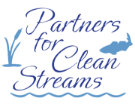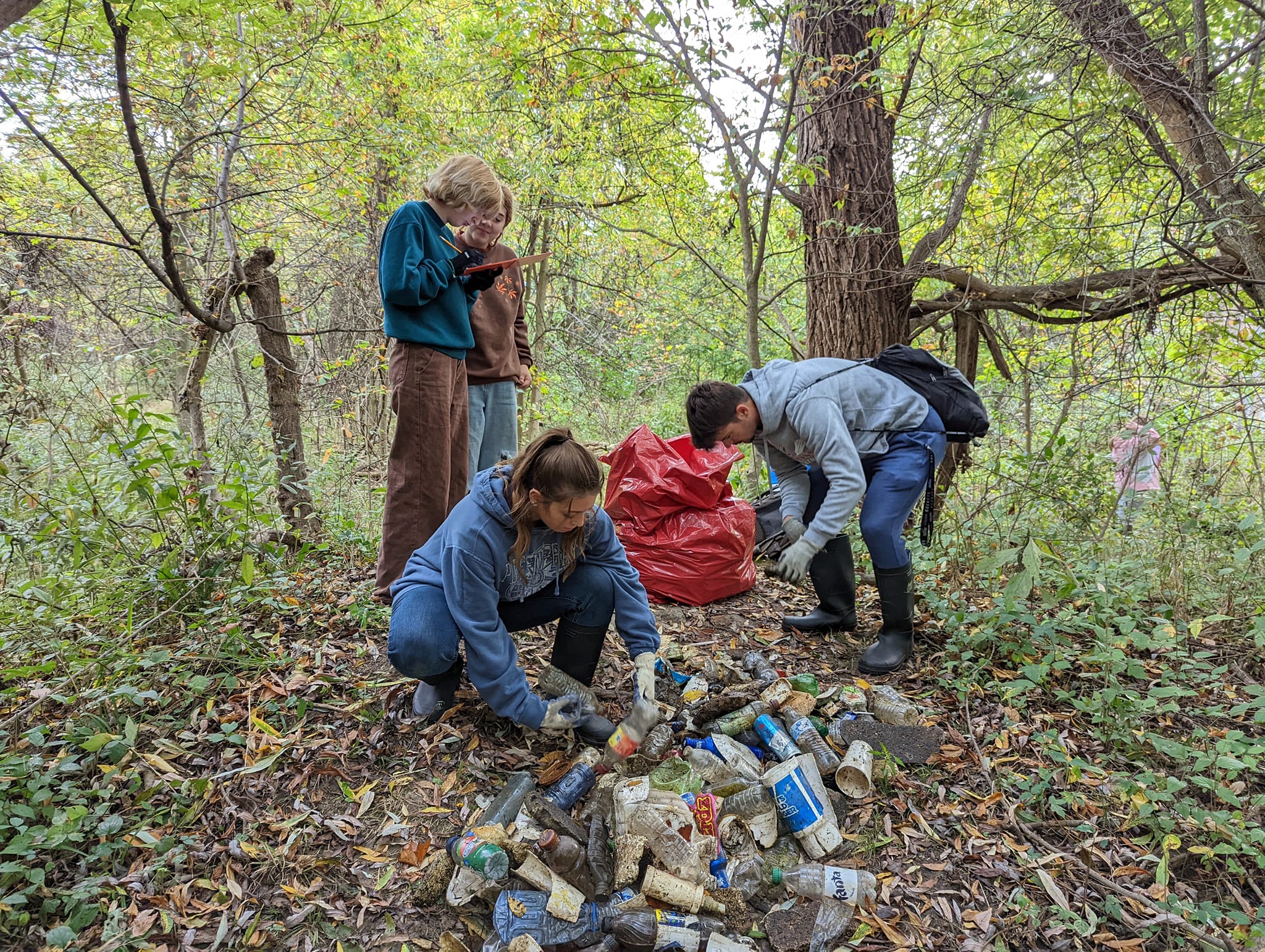What Is Marine Debris?
Marine debris is any persistent solid material that is manufactured or processed, and directly or indirectly, intentionally or unintentionally, disposed of or abandoned into the marine environment or the Great Lakes.
National Oceanic and Atmospheric Administration
This definition is meant to be technical and all-encompassing. You might be curious what some of these terms mean and why they’re included.
Since when are the Great Lakes “marine” ?
While the term “marine debris” was originally coined to refer to material in the ocean, formal definitions also include the Great Lakes and Great Lakes tributary waterways. For this reason, the results of our annual program Clean Your Streams Day count toward the International Coastal Cleanup, and we submit clean-up data year-round to the TIDES database.
Manufactured or processed?
Processing means taking a raw product and refining it and manufacturing means turning a refined material into a final product. For example, turning crude oil into polyethylene to make plastic is processing. Turning polyethylene into a milk jug is manufacturing.
Directly or indirectly?
Some types of marine debris go directly into the water. Imagine fishing line that breaks in the Maumee River: the hook, lure, and lead sinker settle into the riverbed. Other marine debris finds its way indirectly into bodies of water. For example, a cigarette butt tossed onto a curb in Toledo would wash down a storm drains, then into the Ottawa River, then ultimately into Lake Erie.
Intentionally or unintentionally, disposed of or abandoned?
While some marine debris is unfortunately knowingly dumped into our waterways, plenty finds it way into our water by accident. For example, when trash is dumped directly into a bin without getting bagged and tied off, loose trash pieces can be picked up by the wind and blown into a storm drain.
The Problem
Marine debris is an ongoing issue locally and around the world. One study from the University of Rochester calculated that 22 million pounds of plastic debris potentially enter the Great Lakes every year.
At any size, from tiny plastic pellets to illegally dumped cars, marine debris poses a threat to the health of humans and wildlife. Microplastic pieces are often ingested by fish and birds. When this happens, plastic can accumulate in their stomachs, causing significant problems and potentially death. Entanglement in plastic debris is another marine debris-related wildlife mortality cause. Fishing nets, fishing lines, synthetic ropes, and plastic packaging can all act as traps for unwary aquatic life.
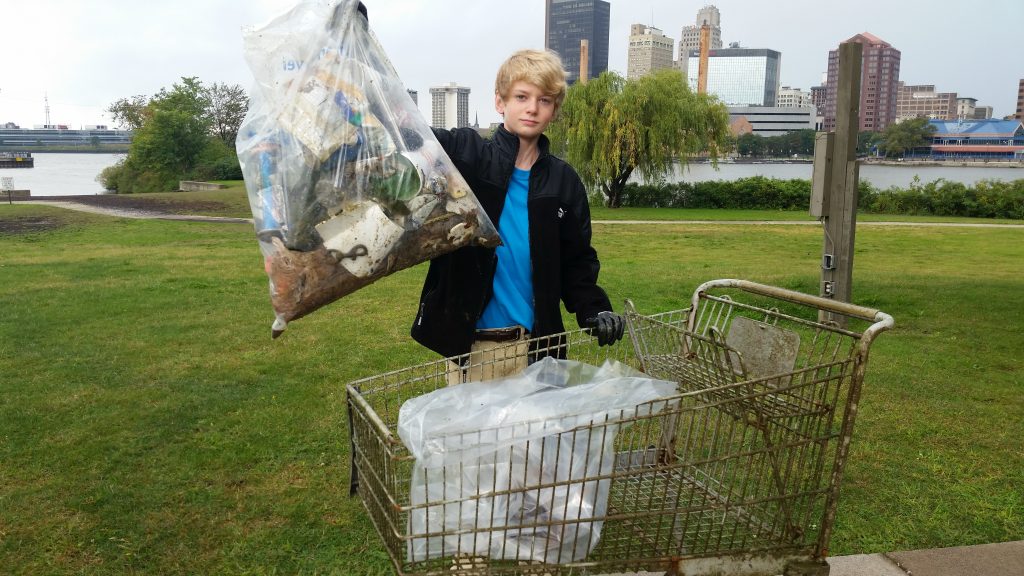
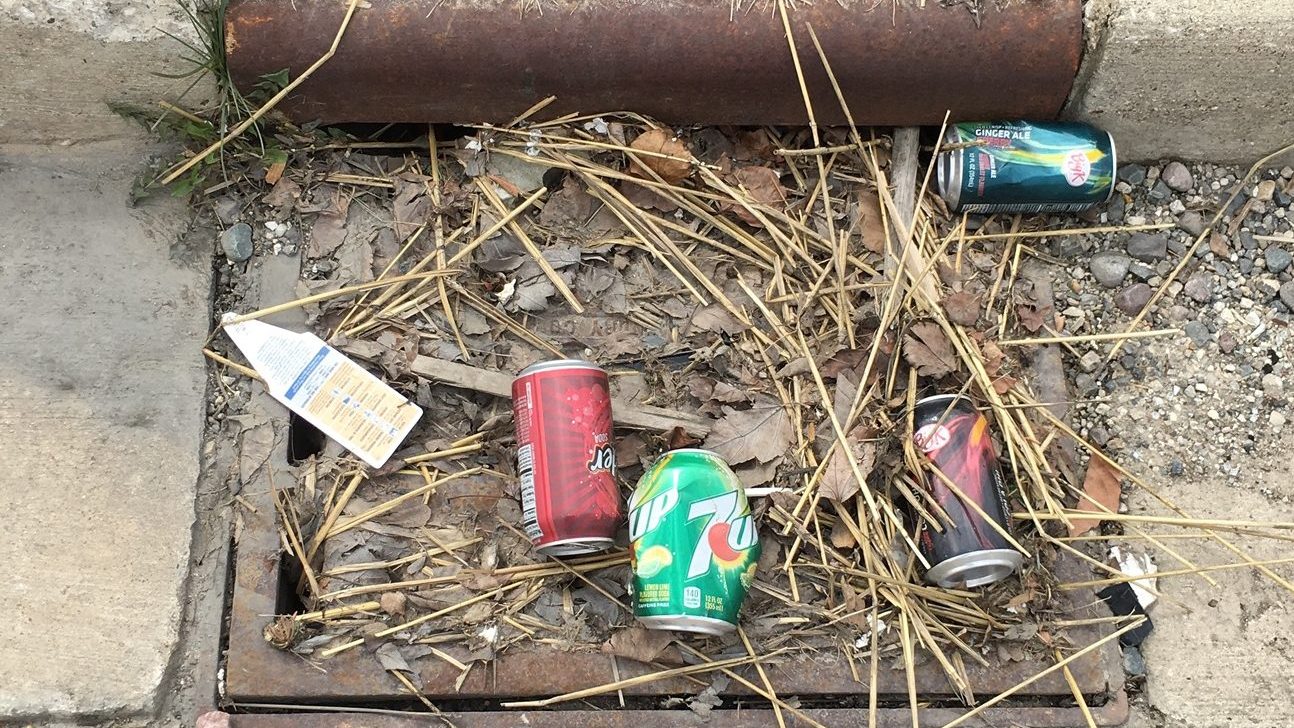
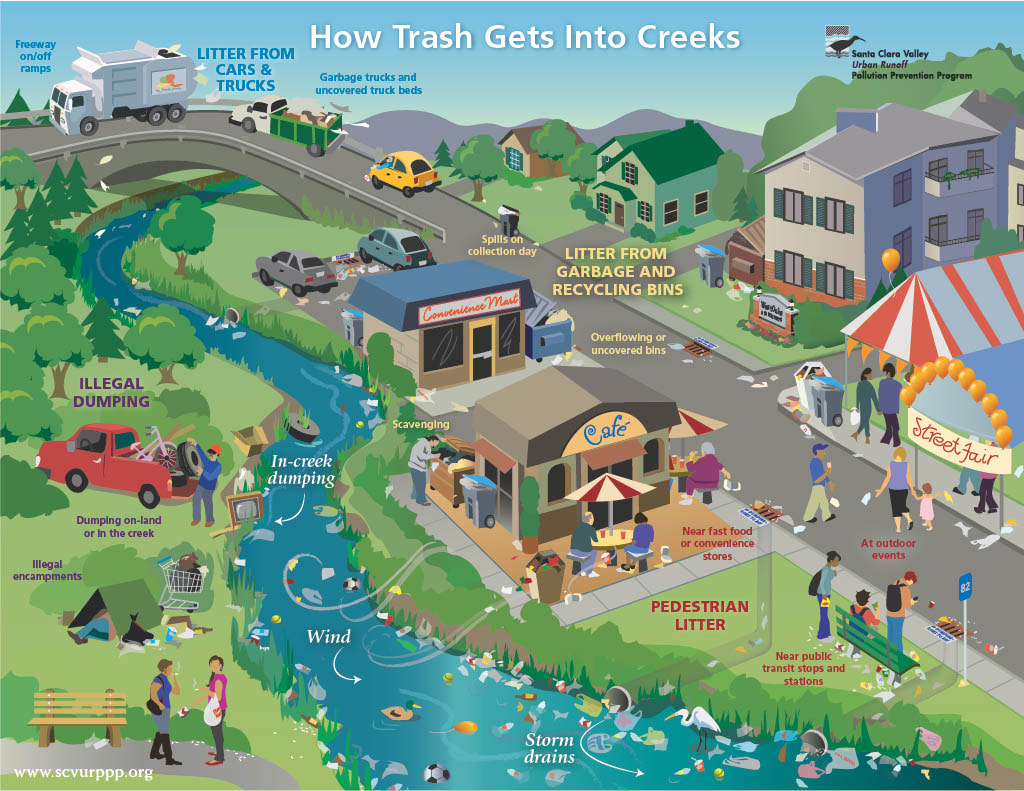
Marine debris can even have an effect at the microscopic level: PCBs, chemicals used historically in paint, lubricants, and coolants, can have harmful effects from lingering in the environment, even years after we stop producing them. (PCBs were banned in the United States in 1979.)
Like other pollutants, marine debris can hitch a ride through storm drains, ditches, and creeks. Trash travels! From tributary waterways, marine debris enters larger waterways like Swan Creek, the Ottawa River and the Maumee River. While many groups are working hard to educate and prevent marine debris, the process begins with you. There are everyday step you can take to reduce your odds of contributing to marine debris.
The Solution
Although marine debris may seem like a big problem, we know it’s not unsolvable. After all, since it’s a human-caused problem, that means the solutions are human-powered. Here some simple tips to reducing Lake Erie marine debris:
- Cover It! Secure your trash using a trash can with a lid and make sure your bag is securely tied shut.
- Bag It! Use reusable bags when shopping, not just at grocery stores but when buying clothes, shoes, hardware or anything else that requires a bag.
- Bottle It! Drink tap water in a reusable bottle when on the go.
- Butt Out! Use an ashtray so cigarette butts don’t reach waterways.
- Reuse It! Use reusable mugs, tableware (when away from home), packing material and gift wrap whenever possible.
- Remove It! Remove all tackle from waterways and use Fishing Line Recycling Bins along the river.
- Leave No Trace! Whenever in a park or other natural space, take all of your trash and belonging with you as you leave.
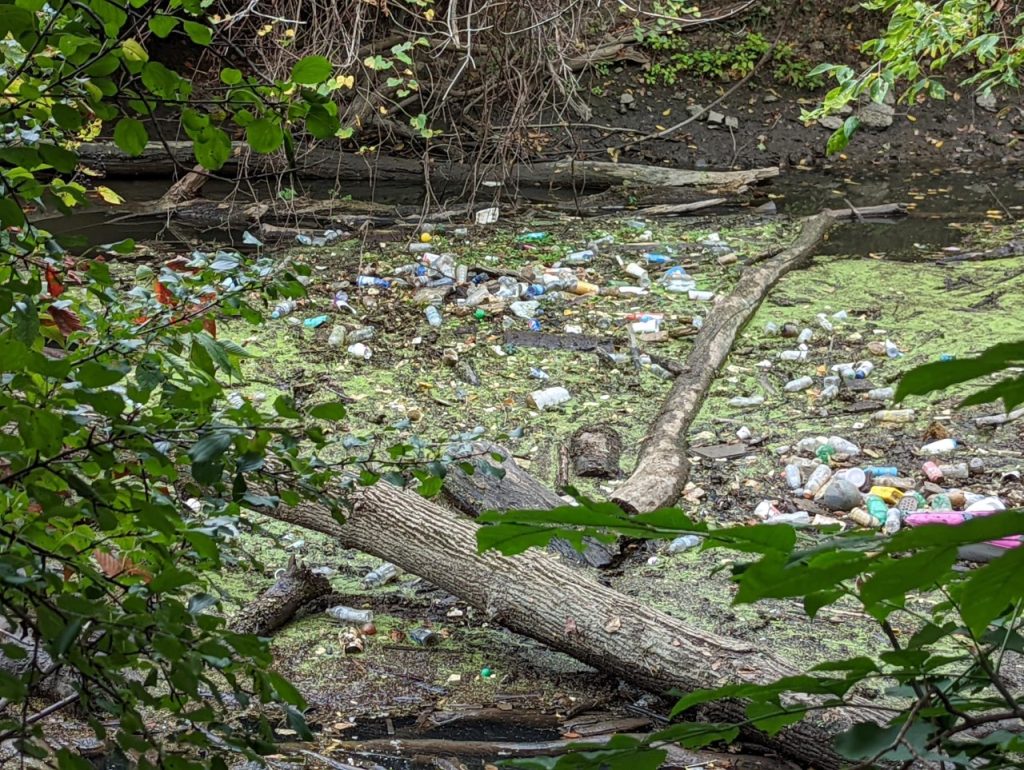
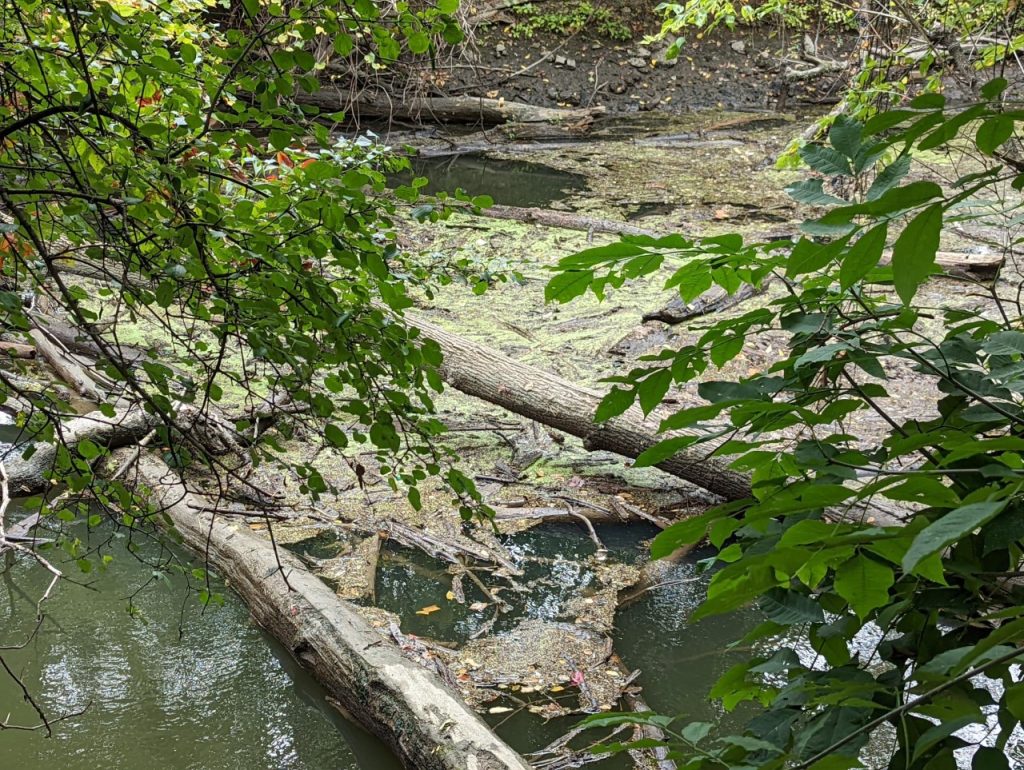
More On Marine Debris
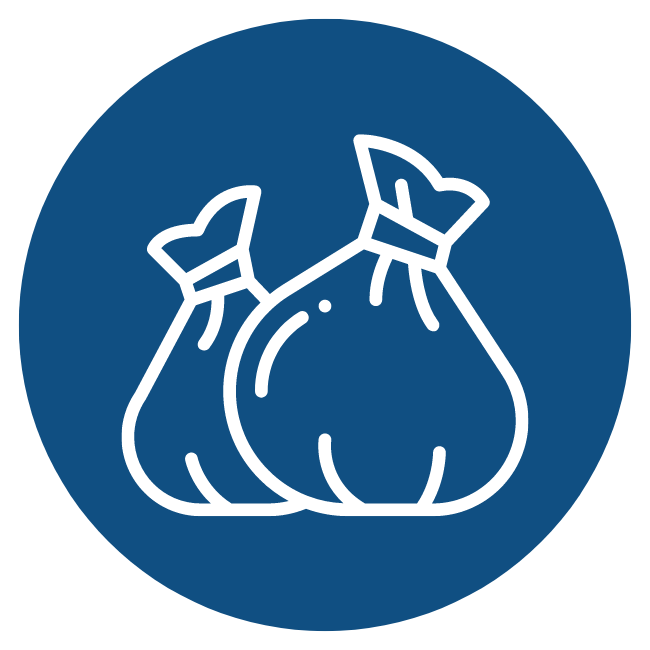
Sorts and Sources
Marine debris comes in many shapes and sizes. Where are some of the places it comes from?
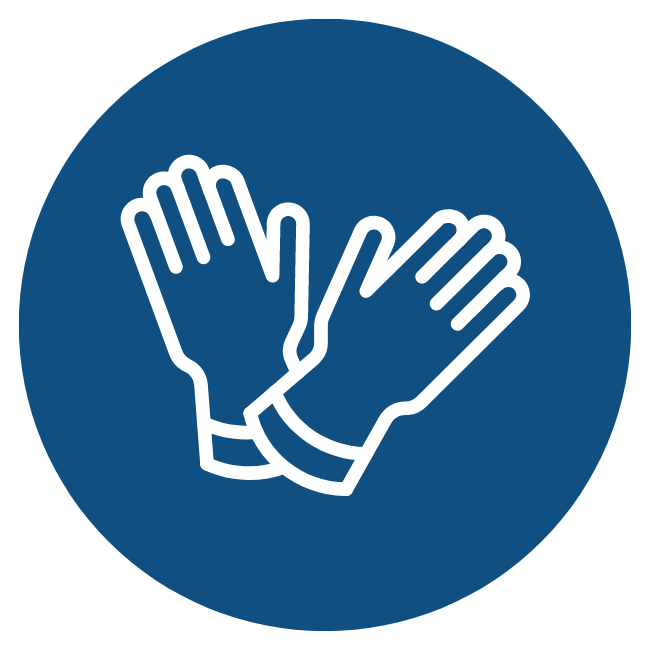
Our Efforts
From Clean Your Streams to Get the Lead Out, learn how our volunteers make a difference.
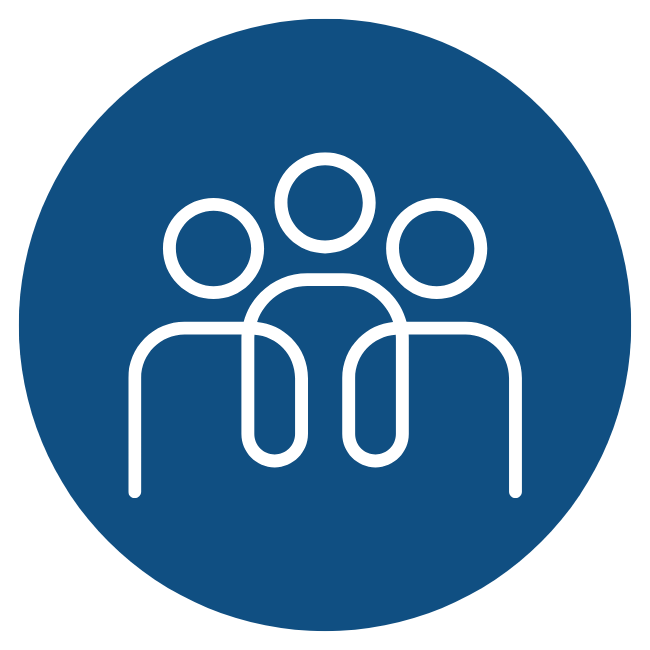
Join the Fight
Looking for more ways you can make a difference? We’ve put together our top tips.
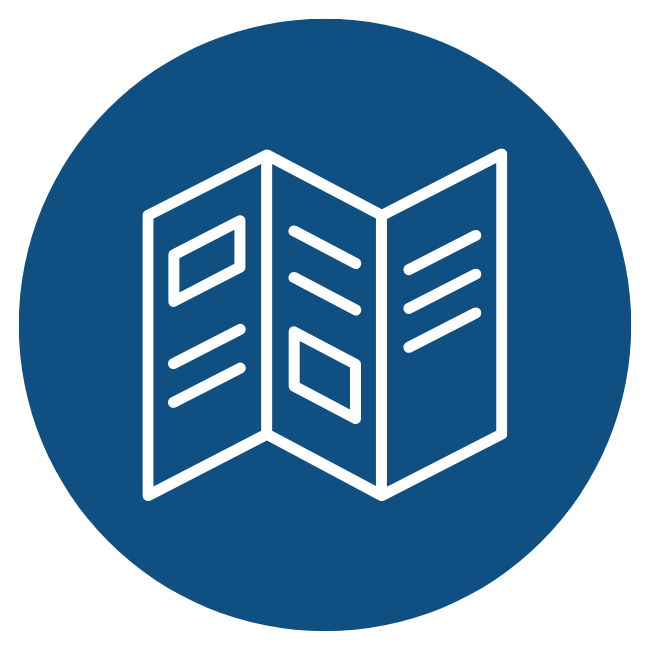
Resource Collection
This collection includes resources for everyone from grade school to life-long learner adults.
